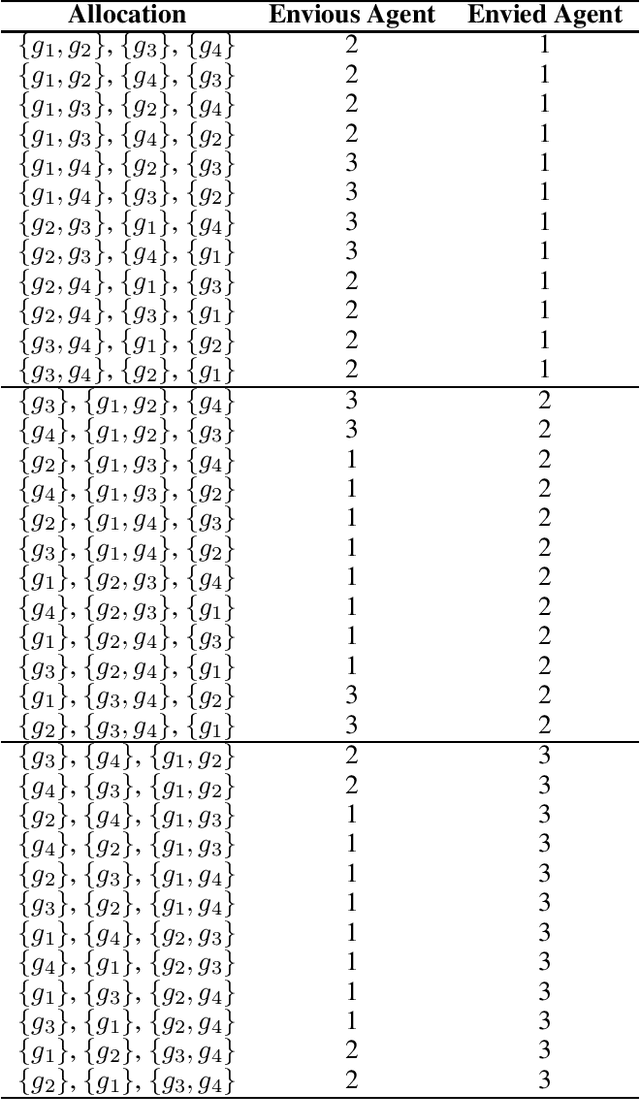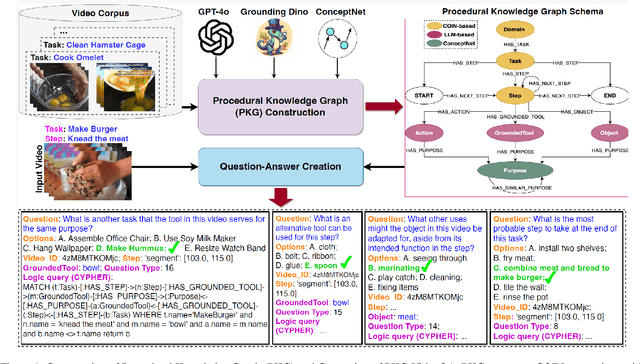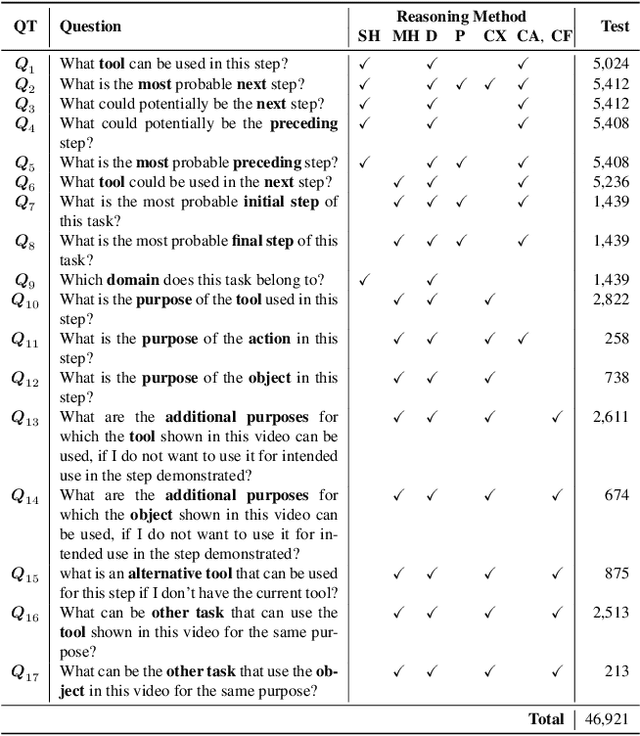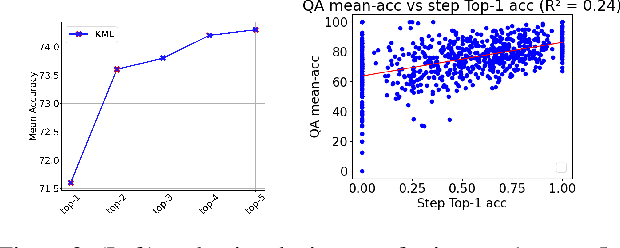Tzeh Yuan Neoh
Incentive-Aware AI Safety via Strategic Resource Allocation: A Stackelberg Security Games Perspective
Feb 06, 2026Abstract:As AI systems grow more capable and autonomous, ensuring their safety and reliability requires not only model-level alignment but also strategic oversight of the humans and institutions involved in their development and deployment. Existing safety frameworks largely treat alignment as a static optimization problem (e.g., tuning models to desired behavior) while overlooking the dynamic, adversarial incentives that shape how data are collected, how models are evaluated, and how they are ultimately deployed. We propose a new perspective on AI safety grounded in Stackelberg Security Games (SSGs): a class of game-theoretic models designed for adversarial resource allocation under uncertainty. By viewing AI oversight as a strategic interaction between defenders (auditors, evaluators, and deployers) and attackers (malicious actors, misaligned contributors, or worst-case failure modes), SSGs provide a unifying framework for reasoning about incentive design, limited oversight capacity, and adversarial uncertainty across the AI lifecycle. We illustrate how this framework can inform (1) training-time auditing against data/feedback poisoning, (2) pre-deployment evaluation under constrained reviewer resources, and (3) robust multi-model deployment in adversarial environments. This synthesis bridges algorithmic alignment and institutional oversight design, highlighting how game-theoretic deterrence can make AI oversight proactive, risk-aware, and resilient to manipulation.
The Cost of EFX: Generalized-Mean Welfare and Complexity Dichotomies with Few Surplus Items
Jan 19, 2026Abstract:Envy-freeness up to any good (EFX) is a central fairness notion for allocating indivisible goods, yet its existence is unresolved in general. In the setting with few surplus items, where the number of goods exceeds the number of agents by a small constant (at most three), EFX allocations are guaranteed to exist, shifting the focus from existence to efficiency and computation. We study how EFX interacts with generalized-mean ($p$-mean) welfare, which subsumes commonly-studied utilitarian ($p=1$), Nash ($p=0$), and egalitarian ($p \rightarrow -\infty$) objectives. We establish sharp complexity dichotomies at $p=0$: for any fixed $p \in (0,1]$, both deciding whether EFX can attain the global $p$-mean optimum and computing an EFX allocation maximizing $p$-mean welfare are NP-hard, even with at most three surplus goods; in contrast, for any fixed $p \leq 0$, we give polynomial-time algorithms that optimize $p$-mean welfare within the space of EFX allocations and efficiently certify when EFX attains the global optimum. We further quantify the welfare loss of enforcing EFX via the price of fairness framework, showing that for $p > 0$, the loss can grow linearly with the number of agents, whereas for $p \leq 0$, it is bounded by a constant depending on the surplus (and for Nash welfare it vanishes asymptotically). Finally we show that requiring Pareto-optimality alongside EFX is NP-hard (and becomes $Σ_2^P$-complete for a stronger variant of EFX). Overall, our results delineate when EFX is computationally costly versus structurally aligned with welfare maximization in the setting with few surplus items.
Fraud-Proof Revenue Division on Subscription Platforms
Nov 06, 2025Abstract:We study a model of subscription-based platforms where users pay a fixed fee for unlimited access to content, and creators receive a share of the revenue. Existing approaches to detecting fraud predominantly rely on machine learning methods, engaging in an ongoing arms race with bad actors. We explore revenue division mechanisms that inherently disincentivize manipulation. We formalize three types of manipulation-resistance axioms and examine which existing rules satisfy these. We show that a mechanism widely used by streaming platforms, not only fails to prevent fraud, but also makes detecting manipulation computationally intractable. We also introduce a novel rule, ScaledUserProp, that satisfies all three manipulation-resistance axioms. Finally, experiments with both real-world and synthetic streaming data support ScaledUserProp as a fairer alternative compared to existing rules.
Fairness in Repeated Matching: A Maximin Perspective
Oct 06, 2025Abstract:We study a sequential decision-making model where a set of items is repeatedly matched to the same set of agents over multiple rounds. The objective is to determine a sequence of matchings that either maximizes the utility of the least advantaged agent at the end of all rounds (optimal) or at the end of every individual round (anytime optimal). We investigate the computational challenges associated with finding (anytime) optimal outcomes and demonstrate that these problems are generally computationally intractable. However, we provide approximation algorithms, fixed-parameter tractable algorithms, and identify several special cases whereby the problem(s) can be solved efficiently. Along the way, we also establish characterizations of Pareto-optimal/maximum matchings, which may be of independent interest to works in matching theory and house allocation.
Not in My Backyard! Temporal Voting Over Public Chores
Aug 12, 2025Abstract:We study a temporal voting model where voters have dynamic preferences over a set of public chores -- projects that benefit society, but impose individual costs on those affected by their implementation. We investigate the computational complexity of optimizing utilitarian and egalitarian welfare. Our results show that while optimizing the former is computationally straightforward, minimizing the latter is computationally intractable, even in very restricted cases. Nevertheless, we identify several settings where this problem can be solved efficiently, either exactly or by an approximation algorithm. We also examine the effects of enforcing temporal fairness and its impact on social welfare, and analyze the competitive ratio of online algorithms. We then explore the strategic behavior of agents, providing insights into potential malfeasance in such decision-making environments. Finally, we discuss a range of fairness measures and their suitability for our setting.
Online Fair Division with Additional Information
May 30, 2025Abstract:We study the problem of fairly allocating indivisible goods to agents in an online setting, where goods arrive sequentially and must be allocated irrevocably to agents. Focusing on the popular fairness notions of envy-freeness, proportionality, and maximin share fairness (and their approximate variants), we ask how the availability of information on future goods influences the existence and approximability of fair allocations. In the absence of any such information, we establish strong impossibility results, demonstrating the inherent difficulty of achieving even approximate fairness guarantees. In contrast, we demonstrate that knowledge of additional information -- such as aggregate of each agent's total valuations (equivalently, normalized valuations) or the multiset of future goods values (frequency predictions) -- would enable the design of fairer online algorithms. Given normalization information, we propose an algorithm that achieves stronger fairness guarantees than previously known results. Given frequency predictions, we introduce a meta-algorithm that leverages frequency predictions to match the best-known offline guarantees for a broad class of ''share-based'' fairness notions. Our complementary impossibility results in each setting underscore both the limitations imposed by uncertainty about future goods and the potential of leveraging structured information to achieve fairer outcomes in online fair division.
Understanding EFX Allocations: Counting and Variants
Apr 04, 2025

Abstract:Envy-freeness up to any good (EFX) is a popular and important fairness property in the fair allocation of indivisible goods, of which its existence in general is still an open question. In this work, we investigate the problem of determining the minimum number of EFX allocations for a given instance, arguing that this approach may yield valuable insights into the existence and computation of EFX allocations. We focus on restricted instances where the number of goods slightly exceeds the number of agents, and extend our analysis to weighted EFX (WEFX) and a novel variant of EFX for general monotone valuations, termed EFX+. In doing so, we identify the transition threshold for the existence of allocations satisfying these fairness notions. Notably, we resolve open problems regarding WEFX by proving polynomial-time computability under binary additive valuations, and establishing the first constant-factor approximation for two agents.
Neuro Symbolic Knowledge Reasoning for Procedural Video Question Answering
Mar 19, 2025



Abstract:This paper introduces a new video question-answering (VQA) dataset that challenges models to leverage procedural knowledge for complex reasoning. It requires recognizing visual entities, generating hypotheses, and performing contextual, causal, and counterfactual reasoning. To address this, we propose neuro symbolic reasoning module that integrates neural networks and LLM-driven constrained reasoning over variables for interpretable answer generation. Results show that combining LLMs with structured knowledge reasoning with logic enhances procedural reasoning on the STAR benchmark and our dataset. Code and dataset at https://github.com/LUNAProject22/KML soon.
Temporal Fair Division of Indivisible Items
Oct 18, 2024Abstract:We study a fair division model where indivisible items arrive sequentially, and must be allocated immediately and irrevocably. Previous work on online fair division has shown impossibility results in achieving approximate envy-freeness under these constraints. In contrast, we consider an informed setting where the algorithm has complete knowledge of future items, and aim to ensure that the cumulative allocation at each round satisfies approximate envy-freeness -- which we define as temporal envy-freeness up to one item (TEF1). We focus on settings where items can be exclusively goods or exclusively chores. For goods, while TEF1 allocations may not always exist, we identify several special cases where they do -- two agents, two item types, generalized binary valuations, unimodal preferences -- and provide polynomial-time algorithms for these cases. We also prove that determining the existence of a TEF1 allocation is NP-hard. For chores, we establish analogous results for the special cases, but present a slightly weaker intractability result. We also establish the incompatibility between TEF1 and Pareto-optimality, with the implication that it is intractable to find a TEF1 allocation that maximizes any $p$-mean welfare, even for two agents.
Temporal Elections: Welfare, Strategyproofness, and Proportionality
Aug 24, 2024Abstract:We investigate a model of sequential decision-making where a single alternative is chosen at each round. We focus on two objectives-utilitarian welfare (Util) and egalitarian welfare (Egal)-and consider the computational complexity of the associated maximization problems, as well as their compatibility with strategyproofness and proportionality. We observe that maximizing Util is easy, but the corresponding decision problem for Egal is NP-complete even in restricted cases. We complement this hardness result for Egal with parameterized complexity analysis and an approximation algorithm. Additionally, we show that, while a mechanism that outputs a Util outcome is strategyproof, all deterministic mechanisms for computing Egal outcomes fail a very weak variant of strategyproofness, called non-obvious manipulability (NOM). However, we show that when agents have non-empty approval sets at each timestep, choosing an Egal-maximizing outcome while breaking ties lexicographically satisfies NOM. Regarding proportionality, we prove that a proportional (PROP) outcome can be computed efficiently, but finding an outcome that maximizes Util while guaranteeing PROP is NP-hard. We also derive upper and lower bounds on the price of proportionality with respect to Util and Egal.
 Add to Chrome
Add to Chrome Add to Firefox
Add to Firefox Add to Edge
Add to Edge